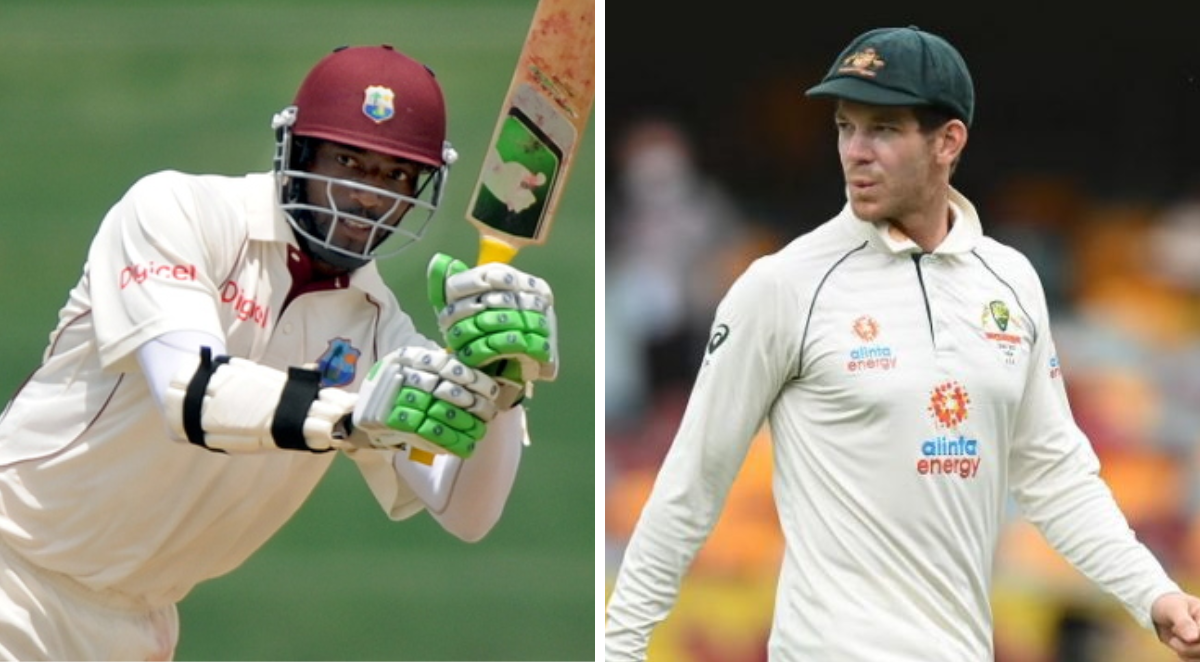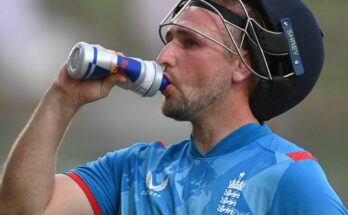Pakistan recently named Shan Masood as Babar Azam’s successor in Test cricket, joining the list of unusual choices as captains in the format.
There was a time when only amateurs led England. Members of the royal family were considered more suitable than Indian captains. And only white men can be West Indies captains (or South African Test cricketers). In the late 1970s, with the emergence of Kerry Packer’s World Series in his cricket, Australia were forced to recall Simpson as captain of the third team as Australia replaced Bobby in his fourth year, who had been retired for a decade. .
However, such unusual appointments have become rare since the end of the Packer era, around 1980, the list’s closing date.
Chris Cowdrey (England)
Few sum up the summer of terror of England’s four captains in 1988. After he lost two of his first three Test matches of the season, Cowdrey was appointed leader. This was a strange move as he had scored 96 runs and four wickets in five Test matches, all over three-and-a-half years ago. The Wisden Almanack pointed out that Electoral Commission Chairman Peter May is Cowdrey’s godfather.
Cowdrey scored 5 runs but lost his wicket in a 10-wicket defeat and never played again. However, the oft-quoted conversation with Viv Richards during Throw is only partially true.
Lee Germon (New Zealand)
During the 1990s, New Zealand troops clashed on and off the field. After a disastrous tour of South Africa in 1994/95, new coach Glenn Turner immediately promoted the previously unused Lee Garmon to Test captain. To be fair, Germon has done a great job in domestic cricket at Canterbury University.
He led New Zealand in each of the 12 Test matches. He only won one of them, but it was a difficult team from the start. Shortly after Turner left, he was fired amid rumors of conflict with some senior members.
Mark Butcher (England)
After Nasser Hussein’s broken finger did not heal in time, England’s squad gave Butcher, the second youngest member of the team, the responsibility for the friendly against New Zealand at Old Trafford. This was an odd choice as there were seven cricketers in the eleven over the age of 30, including former captains Mike Atherton and Alec Stewart. He could only make five and nine, but Atherton and Stewart saved the test. Butcher was left out of the squad for the final Test of the summer, leaving England bottom of the world Test rankings.
Brian Murphy (Zimbabwe)
Of all the captains Zimbabwe fielded during the turbulent early 2000s, Murphy was the most unusual. He had taken only 18 wickets in his previous 10 Test matches and had no batting privileges. However, in 2001/02 voters gave him the job over the Flower brothers and Heath’s streak, and he succeeded him.
In Dhaka, Zimbabwe defeated Bangladesh by an innings (bowling average rose from 58.55 to 61.83) as Murphy went wicketless. He then broke his finger in the nets and never played Test cricket again.
Khaled Mahmud (Bangladesh)
Bangladesh had only been playing Test cricket for a year when Mahmood made his debut (in Murphy’s final Test). This explains why he played his 12 times even though with the average bat he played 12 times and with the ball he played 64 times. What seems strange is that this is the third time in his career that he has been appointed. Bangladesh lost every time they took the lead – to be fair, a different captain wouldn’t have made much of a difference in the result – and Mahmood never played Test cricket again. .
Floyd Reifer (West Indies)
Leifer last played Test cricket 10 years ago and was active in domestic cricket until 2009, when several West Indies cricketers were forced to play in Bangladesh due to a dispute with the board. He withdrew from the series match.
Leifer was asked to lead a team that included nine players without international caps. Bangladesh won both Test matches, with Leifer losing in all four innings to Mahmudullah. However, his batting average increased from his 7.87 to 9.25…
Shahid Afridi and Salman Butt (Pakistan)
Since the achievements of one cannot be discussed without the achievements of the other, the two deserve a joint entry. Afridi led Pakistan in his ODIs and T20Is and performed better than expected in Tests (36.51 for 1,716 runs and 35.60 for 48 wickets).
Yet somehow Afridi and Test cricket captaincy seem like two concepts that are not destined to pass. The only time they did something like this was against Australia at Lord’s in 2010. You can see why. Afridi lost wickets in violent scuffles in every innings and gave up midway through the match. He then withdrew from the match, leaving Salman Butt (‘The Best Man’) behind.
Although Batt himself was not a great cricketer (he finished the match with a batting average of 30), he scored 63 and 92 when Afridi led at Lord’s. Batting certainly wasn’t the biggest flaw in his career, as the world learned five Test matches and a sting later.
Tim Paine (Australia)
Steve Smith and his deputy David Warner were accused of ball-tampering and resigned three days after the start of the infamous 2017/18 Newlands Test match. During his professional days, Paine was probably the only cricketer to beofficiallynamed captain during a Test match, with regular captains (and even vice-captains) still remaining in the XI.
That was a strange choice. At the beginning of the season Paine had to be dissuaded from his retirement plans by Tasmanian coach Adam Griffiths. He returned to the Test XI for the first time in seven years and equaled the Australian record for most Test matches missed (78). He then led Australia until the end of 2021.
Shan Masood (Pakistan)
Masood has played at least one Test match in each of his 11-year international career and has so far played only 30 matches against the Pakistan Eleven in this format. His batting average of 28.51 is the lowest in Pakistan’s history among players who have batted 50 times in the top four, just above Butt, another name on the list. Interesting times lie ahead.



